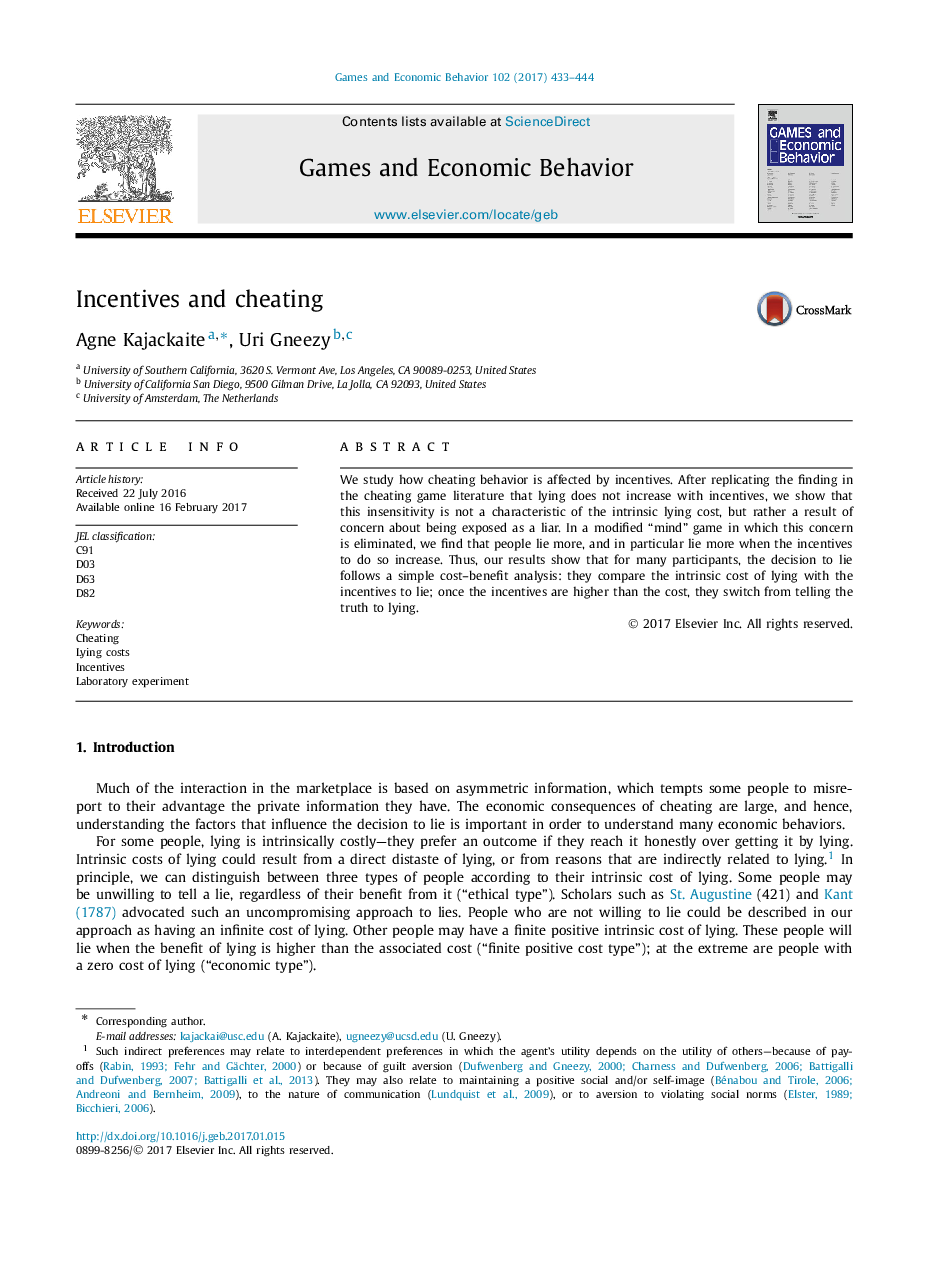| Article ID | Journal | Published Year | Pages | File Type |
|---|---|---|---|---|
| 5071299 | Games and Economic Behavior | 2017 | 12 Pages |
Abstract
We study how cheating behavior is affected by incentives. After replicating the finding in the cheating game literature that lying does not increase with incentives, we show that this insensitivity is not a characteristic of the intrinsic lying cost, but rather a result of concern about being exposed as a liar. In a modified “mind” game in which this concern is eliminated, we find that people lie more, and in particular lie more when the incentives to do so increase. Thus, our results show that for many participants, the decision to lie follows a simple cost-benefit analysis: they compare the intrinsic cost of lying with the incentives to lie; once the incentives are higher than the cost, they switch from telling the truth to lying.
Related Topics
Social Sciences and Humanities
Economics, Econometrics and Finance
Economics and Econometrics
Authors
Agne Kajackaite, Uri Gneezy,
